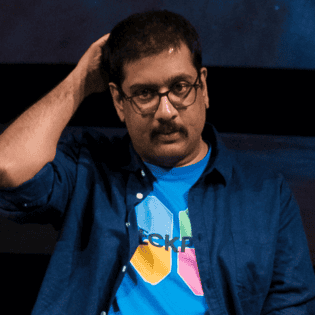We have arrived at the end of 2021, or as some might call it, “2020: Definitive Edition”. It was technically a better experience – updated textures, god rays, ambient occlusion probably – but retained a lot of the bad stuff that held the previous title back. 6/10.
We published our GONTYs last year to talk about the games that got us through spending most of a year in lockdown. This year, we got to leave the house more, but plenty of cancelled plans and events gave us time to return to our backlogs. So here are Checkpoint’s GONTYs (Games of Not This Year) for 2021, our favourite games we played in 2021 that were released in the past, and one game that isn’t even out yet.
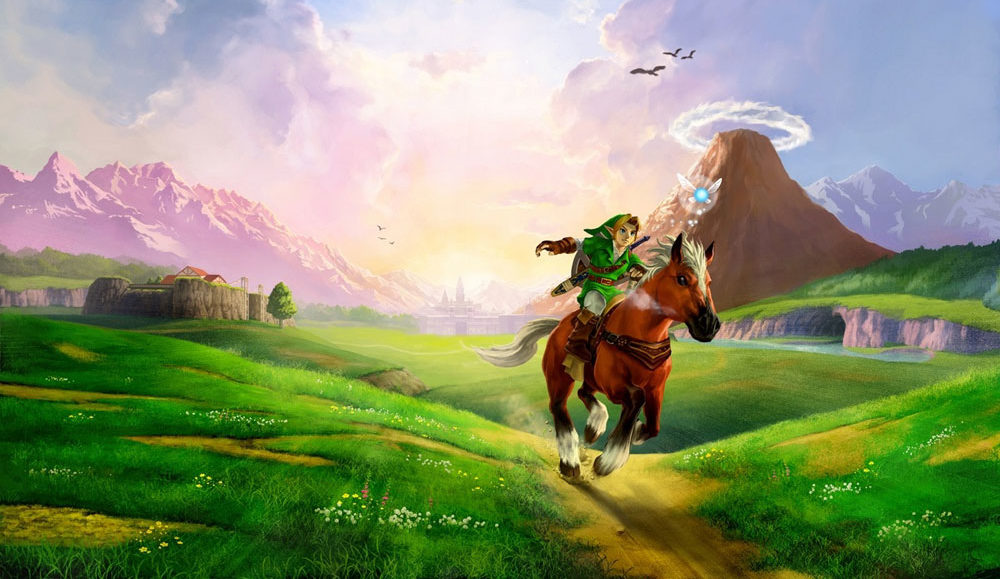
The Legend of Zelda: Ocarina of Time 3D (released 2011)
Back in the distant prehistoric past of 2019, I bought a PlayStation Vita. I got it to play Persona 4 Golden, but mainly because I thought it would be funny to buy a console after its cultural relevancy was over. I quickly discovered the Vita was more than I thought it was, with amazing titles like Severed, Tearaway, and Gravity Rush making perfect use of everything the pocket PS could do. Plus with titles like Tales of Hearts R, Ys VIII, and a generous back catalogue of PS1 and PSP classics, I turned my Vita into a little Favourites box of JRPGs. To reignite that spark, and also because I lost my mind a little this year, I bought a Nintendo 3DS in 2021.
I played the 3DS remake of Ocarina of Time because I have a one-track mind, and I thought it would be funny. I didn’t grow up with a Nintendo console, and I thought the only reason anyone would play this game would be for nostalgia value, so why not amuse myself for a bit by cosplaying as an N64 player? “Do a barrel roll!”, etc.
I knew Ocarina would be well-made, but I wasn’t expecting to be completely engrossed in it. The game has not aged well, not even the remake – everything outside the dungeons bored me to tears, and the story is bad (two blonde children guess that a dark-skinned man is evil, and turns out he is!) – but the dungeons were some of the best-constructed levels I’d ever played in any game. The remake made the infamous Water Temple easier to navigate, which meant I had a blast in the Water Temple! I now want to play the Majora’s Mask remake, and every single other Zelda I can get my hands on. And unless Wind Waker and Twilight Princess get ported to the Switch anytime soon, I look forward to buying a Wii U in 2023. – Pedro
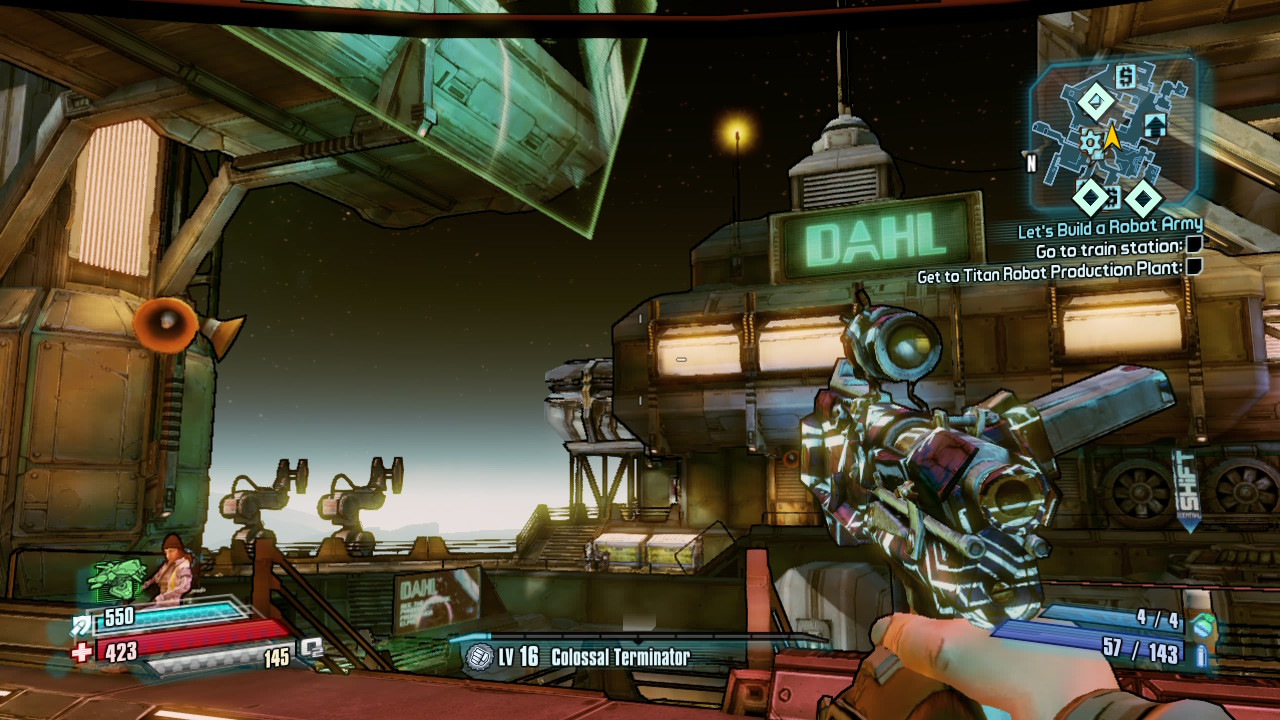
Borderlands Legendary Collection (released 2020)
We’ve all had ample time to return to our gaming backlogs during the lockdowns of 2021, and one of my regrets thus far is not having actually played a Borderlands game all the way through before. So, armed with the Nintendo Switch versions of Borderlands 2 and Borderlands: The Pre-Sequel that came out last year and a friend who wanted to play through it with me in co-op, I finally played these games and had a blast.
Despite being nearly a decade old at this point, Borderlands 2’s gameplay loop of shooting, looting, and levelling holds up very well. From the zany DLC missions to the iconic antagonist of Handsome Jack, revisiting Pandora and slicing through hordes of bandits as Krieg was a ton of fun. The Switch port is rather good as well, neatly capturing that experience in a handheld format.
Special mention must also go to Borderlands: The Pre-Sequel, which despite re-using many assets from Borderlands 2, still feels incredibly unique and interesting all on its own. One reason is the added low-gravity and oz-kit mechanics, which were not really carried over into Borderlands 3, giving the Pre-Sequel’s gunfights a much greater sense of verticality. It also has to be mentioned that by virtue of the game’s developers and most of the voice cast being based in Australia, Borderlands: The Pre-Sequel’s setting of Elpis is essentially Space Australia, with all the fun cultural in-jokes and references. I found it quite charming.
In terms of keeping me connected with others and giving me a project to work on, playing through the Borderlands games was a lot of fun this year. As a recent convert to the series, I certainly have a lot to look forward to. – Tom
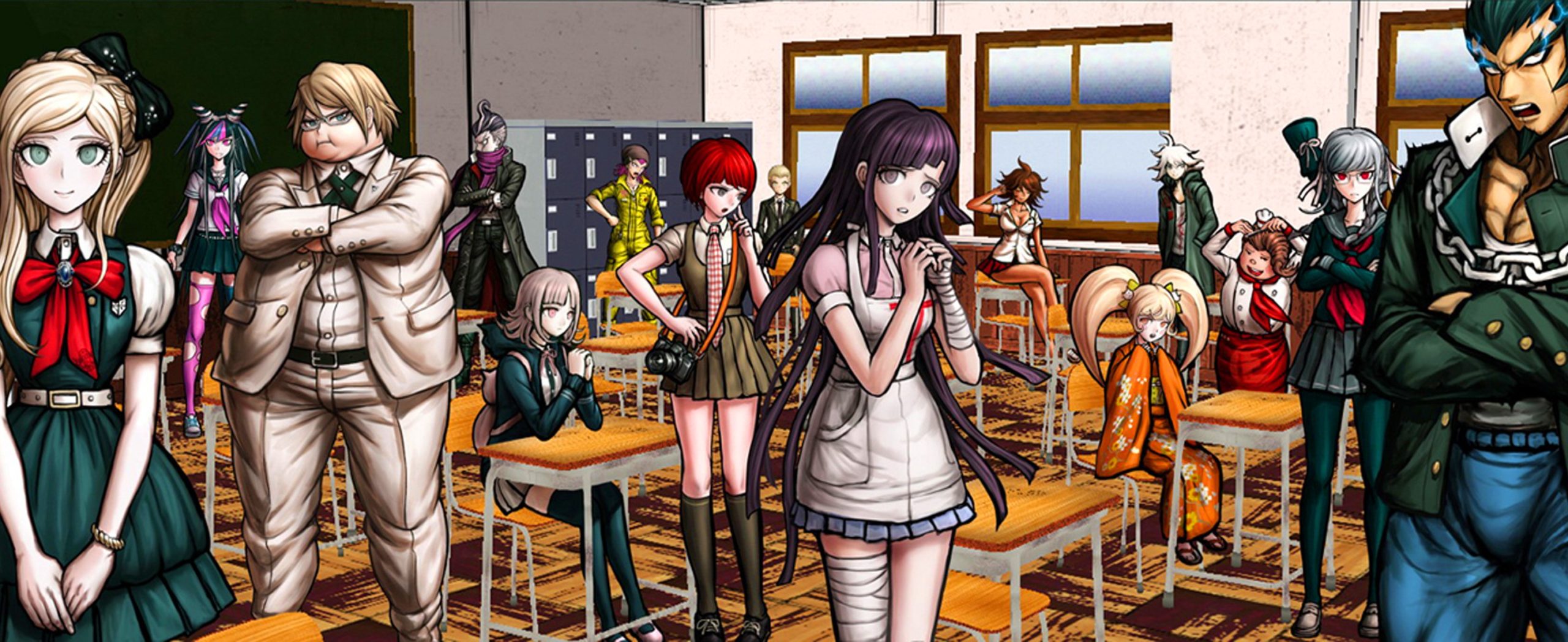
Danganronpa 2: Goodbye Despair (released 2012)
Part of what I’ve now come to know as one of the best visual novel mystery series I’ve ever played, Danganronpa 2: Goodbye Despair was absolutely crucial to me this year. This is a single-player experience in which players witness a party of upwards of 15-16 teenagers finding themselves in a death game, not too dissimilar to the 2000 film Battle Royale. What started as an isolated experience, seeing just who of the quirky and intriguing characters would kill and who would make it out alive, soon became a cooperative adventure for me.
You see, this is a game I entered with two close people in my life already sporting heavy investment. I got to play the game with them by my side, reacting to all the huge reveals in absolute shock while they maniacally watched on in delight. I got to learn about characters such as Nagito Komaeda and friends, seeing one of the best mysteries in games, all set within a tropical island. Danganronpa 2: Goodbye Despair is an immensely memorable affair, building upon its predecessor in every notion. Weird cast, creative murders and absolute vibes make this, and the whole series, a must-play. Better yet, they’re now on Switch. – Charlie

Spiritfarer (released 2020)
These past two years have been… rough. It’s something we can all agree on. And we’ve been able to fill a void with video games. Spiritfarer has been on my wishlist for a while until I found out earlier this year that it’s free on Xbox Game Pass. I’ve read up on the reviews about it and got myself ready for the feels. Spiritfarer is about life and death and the celebration of it all. In it, you take on the role of Stella who has taken over Charon‘s job and guides spirits to the afterlife. You do quests for the spirits to fulfil their last wishes, like giving them their favourite foods and playing their minigames.
There hasn’t been a game like this that attracts my interest so heavily as Spiritfarer. As mentioned before, you will cry. You will feel something each time you have to say goodbye. And sometimes you’ll find a character who is like a loved one who has passed and you’re scared to say goodbye. You have time to sit with it, sit with them until you’re ready. Why did I choose Spiritfarer if it’s such a sad game? Spiritfarer teaches you to hold onto every moment. Each character teaches you something, whether that be gameplay-wise or literal. Some deaths can be too close to home. I paused for a good five to ten minutes when I had to say goodbye to Alice because she reminded me of someone I lost.
Death is a universal language, but so is love. While Spiritfarer is a sad story, it’s also a happy story. Something that will stick with you for years to come. As Keanu Reeves said on The Late Show with Stephen Colbert, when asked what happens when we die he said “the ones who love us, will miss us.” – Melissa

Ecco the Dolphin CD (released 1993)
In Ecco the Dolphin you play as a bottlenose Dolphin who travels through time to save his pod, who were abducted by hostile aliens in a once every 500-year ‘harvest’. Over the course of this action-adventure/puzzle game, you explore crystal blue waters, hazardous undercaves, the ruins of Atlantis, AND battle the Vortex Queen on board an alien spacecraft. Ecco was already a solid title for the Mega Drive, so what makes the Mega CD version the one to play?
The game is unchanged visually, but where this version excels is its stunning red book audio soundtrack by Spencer Nilsen. With its burbling and haunting synthesisers, it transforms the experience into one of calm and beauty. Cuts like ‘Aqua Vistas’ and ‘Motion E’ are perfect examples of music enhancing a visual experience. So when you have an already great game and add one of the best soundtracks ever written for a video game, you have yourself a stunner of a title.
So, pop an infinite life cheat on, put on some decent headphones, and immerse yourself. – Kolby
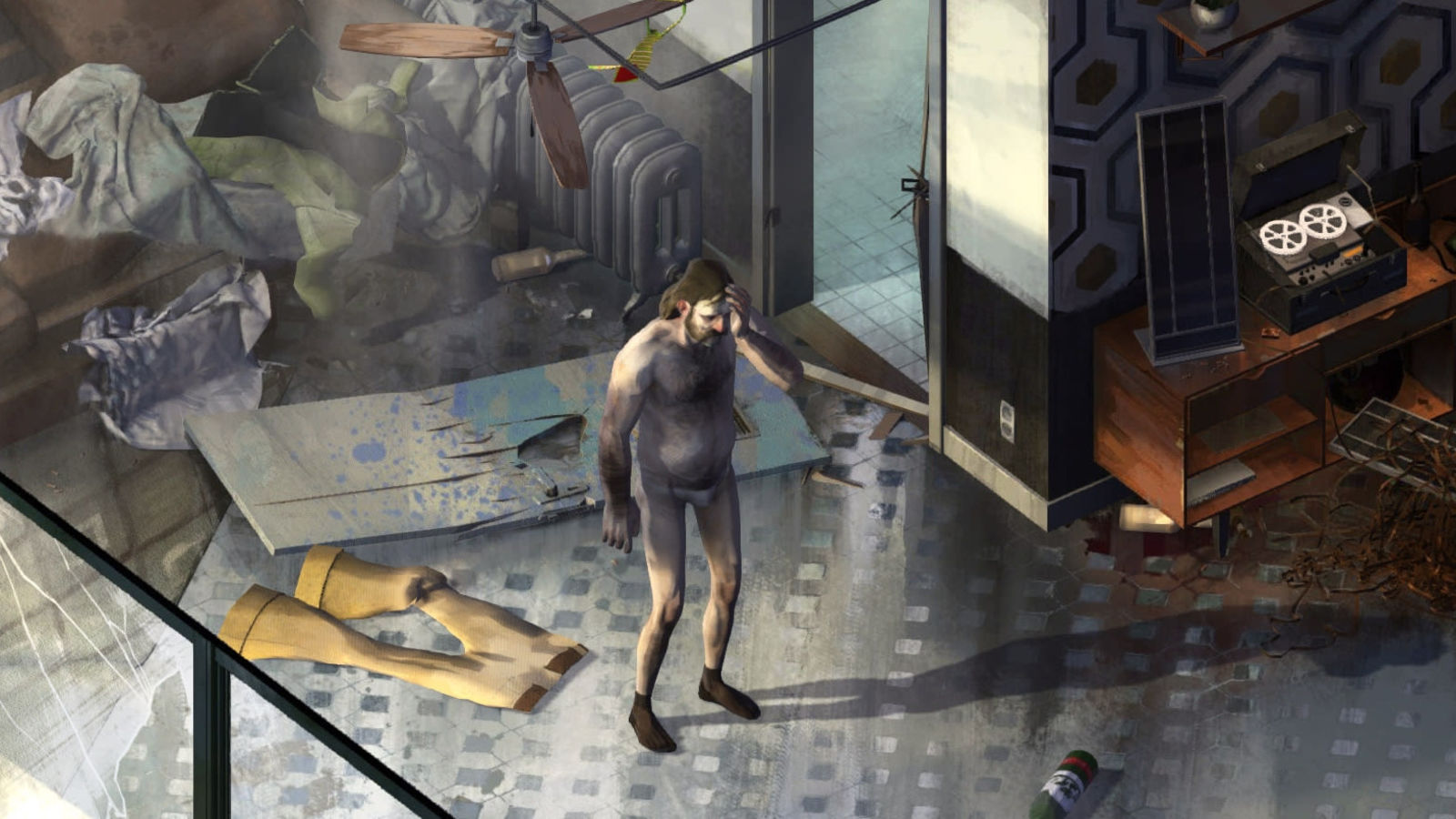
Disco Elysium (released 2019)
Disco Elysium is an RPG that blends realism with the macabre. It’s like if David Lynch made a video game with D&D mechanics. Yeah, it’s dark. Yeah, it will make you wince, and it uncovers some pretty nasty ideas about what it is to be human. The game kicks you in the teeth straight from the opening scene where you find yourself playing an unfit, filthy dude who has just woken up semi-conscious and unsure of who or what he is, in a trashed hotel room. You soon discover you’re a detective who is investigating the lynching of a man who just so happens to still be dangling from a tree nearby. You’ve been in the sleepy fictional town of Martinaise for a while, but you have no memories of interacting with the locals, who all look down their noses at you and treat you like the scum you may just be.
That’s the thing about Disco Elysium; like D&D, narrative choices and your character matter. It means you can choose to play as a scummy dude if you so wish. Depending on where you put your skill points, certain dialogues and actions will be locked meaning you will have to see your character flounder more than once. You’ll see him fall to his flared knees, think disgusting thoughts, have his ego bruised, and maybe, just maybe, find his lost gun and badge in the process. – Lisa

Book of Travels (releasing in 2022)
Opening Book of Travels for the first time feels much like, as the name would suggest, turning the first page of a book. But it must be said, this ‘book’ is only in Early Access.
Oftentimes discussions around whether a game is worthy of acclaim (that acclaim being the title of Game of the Year, or in this case Game of Not This Year) feel like reflections on iteration or version. Franchises grow in age—is this year’s Metroid a worthy sequel? How does it compare to its predecessors? To others in its genre? In some ways, developers compete against themselves as well. Does Deathloop best exemplify Arkane’s game direction? Or was the Dishonoured franchise more engrossing? And in this sense, reviewing can be fun, but often feels anchored in the past.
I’ve never played a game like Book of Travels. There are familiar elements to it, to be sure, no game is truly original, perhaps least of all a stat-based RPG like this. But what it has, even this early in its development, is a sense of authenticity—the game is distinct in what it is and what it wants to be. There’s a slowness to it, the skinner’s box systems of popular game mechanics (all the more exacerbated by loot-box trends) are well hidden behind the game’s peaceful mystique. And the experience, though currently incomplete, feels truly cohesive.
The gentle guitar melody that plays as you move through character creation leads perfectly into the storybook-like narration of the beginning of your journey. And most impressive of all is that the feeling of being in a storybook is preserved throughout the game. The beautiful hand-drawn feel of the graphical style meshes perfectly with the loose nature of the ‘quests’ the game gives you. There’s a strange charm that for me made the experience feel like this storybook was both one I was reading and writing at the same time, immersive and interactive in a way I haven’t experienced before.
While not an exciting experience, Book of Travels in many ways manages to be a game I am incredibly excited for. It might not necessarily be my 2022 Game of the Year, but it’s a game that left me excited for the future of games as a whole. – Henry
